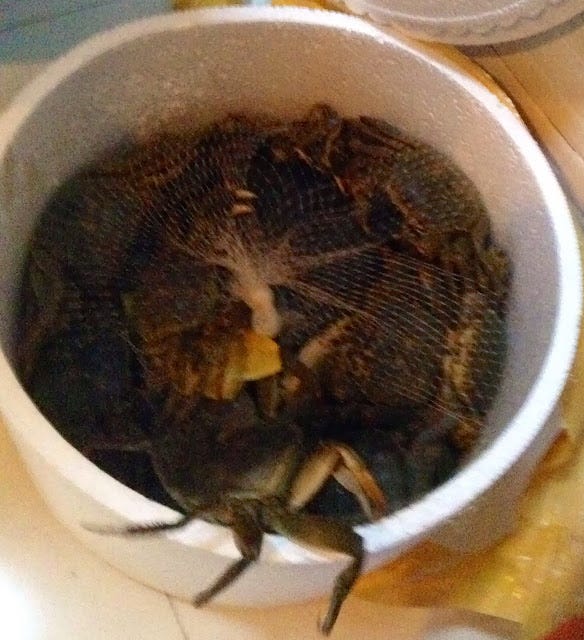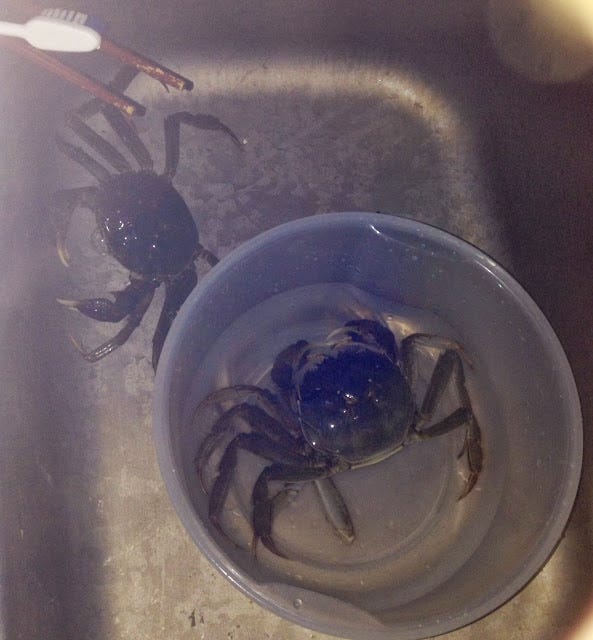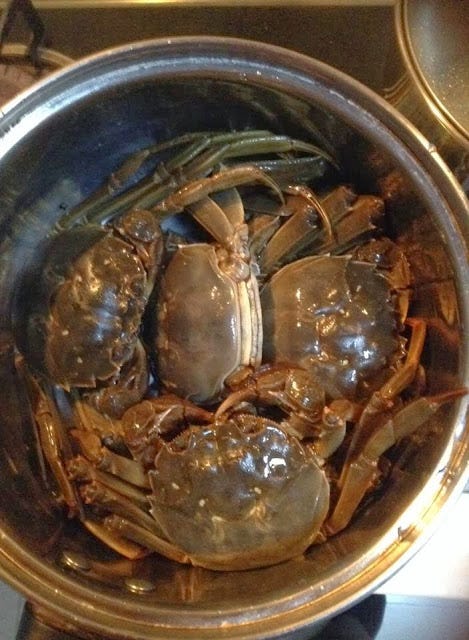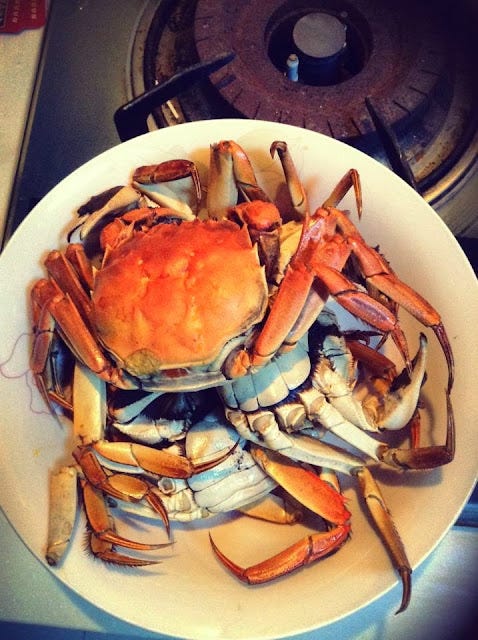A Cooking Conundrum. Crab!
The scrabbling, screeching sounds escape from holes punched in the top of the sealed Styrofoam basin. I march through the hallways of the teacher’s dormitories where my colleague Nancy lives with the basin balanced on my head, reliving yet another India moment. Nancy has been gifted with an enormous casket of live crabs by the family of a student. Little did the family know that Chinese teachers dorm in the same building as students, bunked in rooms of three with shared bathrooms, and no cooking facilities. Imagine a simple youth hostel room and that’s where they stay five days out of the week.
I feel guilty as I take Nancy to my apartment to cook the crabs. I have everything these teachers do not, and I am paid much more. But she is not bitter about it, nor are the other teachers. They are all familiar with the differential status of foreign teachers. None of my better compensation keeps Nancy from insisting on paying for meals when we go out, or from haggling better prices for me for everything from boots at the shopping center to sweet potatoes on the sidewalk. Since I started spending time with Nancy, Wuhan has become much more accessible.
*
As much as I might tear my hair out every other day from rowdy classrooms, my setup with the bilingual Chinese teachers makes office time enjoyable and always educational. An ideal place for language exchange, Chinese and English fly back and forth around the office without a missed beat. The other teachers enjoy teaching me, their resident Chinese language learner, and I get to be their native English consultant.
*
The crabs are making bubbles with their mouthparts when we crack open the casket on my kitchen floor. The jostling on the way to my apartment has gotten them frisky, and a few are already stretching their legs to grab at the edges of the basin. One Houdini manages to get out without our noticing, and makes it halfway across the kitchen floor before I see him in the corner of my eye. A startled shriek escapes me, and we scoop him back into the basin.

Making a break for it!
Nancy and I strategize about how to accomplish our task. Chopsticks to pick them up. Toothbrush to scrub them clean in the sink. Tupperware to transfer them into the steaming pot. I am about to steam crabs alive, and the thought of this makes me want to back out of eating them. But they are good as dead anyway. And Nancy would look at me with a fake stern expression and call me ‘Shao!’ (silly!).

I thought about releasing them into the lake, but I didn't think they'd survive in the freshwater.
On top of that, I remind myself that I have often proclaimed (sometimes in a high and mighty tone) that being involved in the process of bringing food to the table is important. So it was time to put the steam where my mouth was.
Four crabs at a time fit into the steaming pot. I consider them for a moment. Then, a little prayer as I put them into the pot, legs still scrabbling, and cover them with the glass lid. Their legs stop moving, and their shells start to turn red after a minute. Through the fogged lid, I stare transfixed at the process inside the pot – I felt like I had an obligation to be present for it. I felt sorry for them, hoped they did not suffer much, and thanked them for their lives.

Four more crabs went in after that. Somehow I felt like I should be the one to put them in, though Nancy could have done it. It’s an odd feeling, to be directly responsible for death. Not enjoyable, but feels like it has its place in the great machine of things.
Having now done the thing that I had been proselytizing about for so long, I can now authentically encourage you to go and put yourself in the process of how animals get to your plate. In so doing, you will feel magnificently sad things about the weight of consuming responsibly, and compassion for the things you eat.




